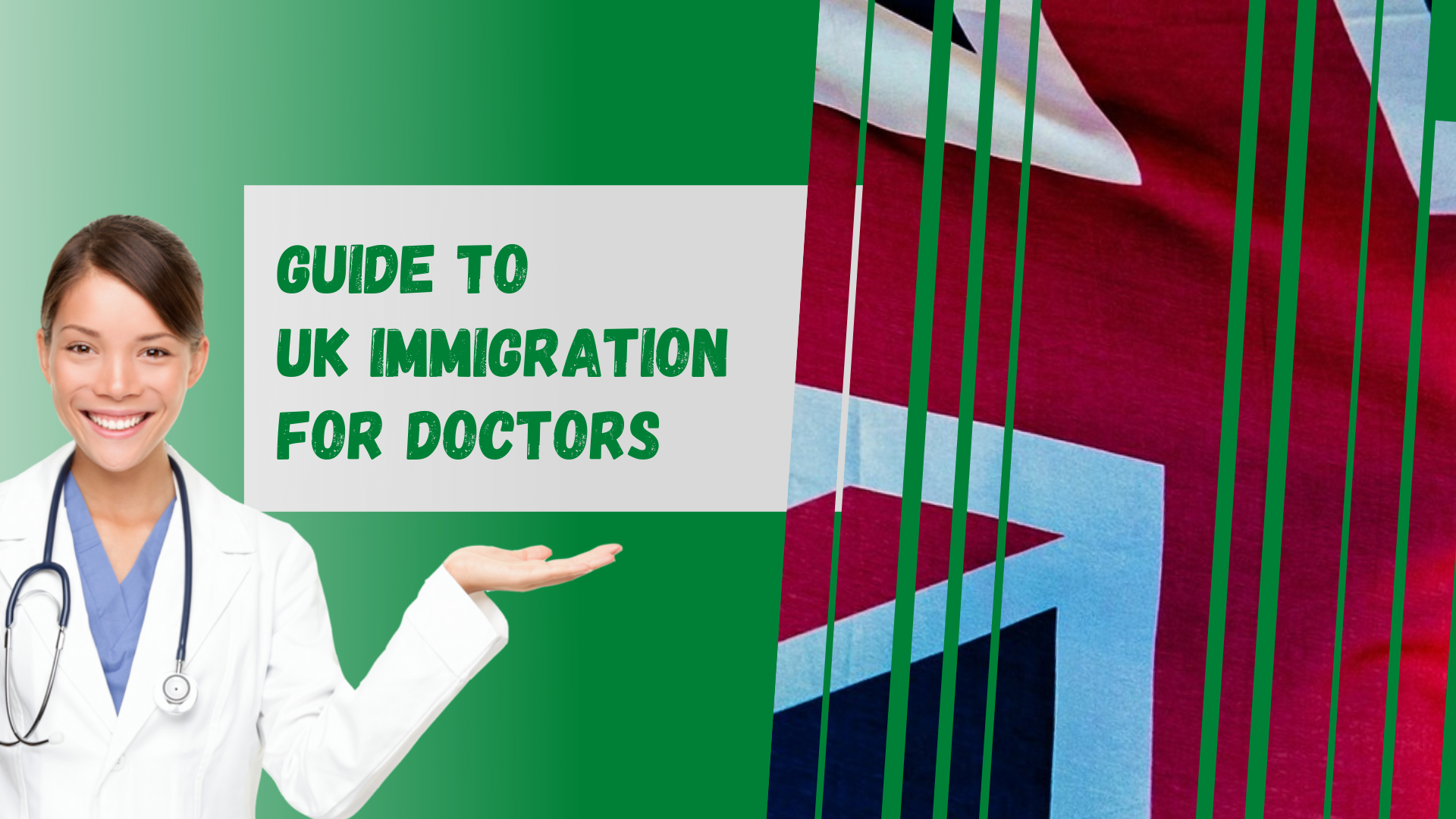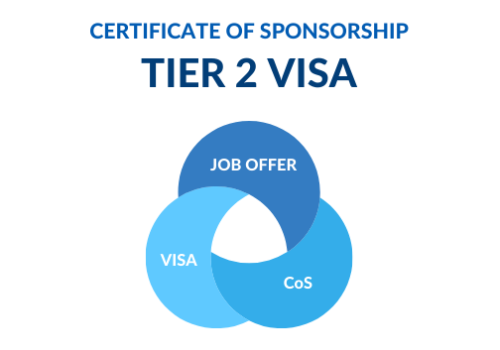New temporary measures have been implemented to address the workforce issues in the health and social care sector in the UK, and as a result, a number of jobs in the care sector have been added to the UK Shortage Occupation List (SOL).
Health and Care Worker Visas will be available for these positions commencing on February 16, 2022, for a term of 12 months. These actions are a continuation of an ongoing effort to solve the labour shortage in the UK’s health and social care system.
As a result of the new regulations, organisations that offer care services will be able to sponsor visas for non-UK citizens and hire them in a variety of caregiving positions.
If a company has a valid sponsorship license and a worker meets the qualifying standards, they may sponsor them for a Health and Care visa that will allow them to work in the UK for a year without having to pay the Immigration Health Surcharge.
Shortage List Has Been Expanded to Include Care Positions
In accordance with the ‘Appendix Shortage Occupation List’ of the United Kingdom’s Immigration Rules, the Shortage Occupation List (SOL) is comprised of those roles that are considered to be in short supply within the resident labour market of the United Kingdom.
As a result, the eligibility requirements for sponsored work visa applications are loosened for these roles. The list is intended to assist and facilitate migrants in successfully getting work visas to cover occupations where there are shortages.
But, what does all of this imply in reality for UK social care companies that are wanting to attract migrant employees from overseas?
Prior to the modification that was announced in December 2021, the SOL already included Senior Care Workers, which fall under SOC Code 6146; Social Workers, who fall under Code 2442; Residential, Day, and Domiciliary Care Managers and Proprietors, which fall under Code 1242; and other occupations.
However, as a response to labour shortages in the sector, additional care roles have been added under the SOC code 6145 to the list of eligible occupations on the SOL. These roles include care assistants, care workers, carers, home care assistants, comfort home care, support workers in nursing homes, and other similar positions.
This indicates that candidates for positions as care workers may only be required to fulfil a minimum annual wage criterion of only £20,480 in order to submit a work visa application.
Requirements for Sponsors to Employ Social Care Professionals in the UK
If you are a UK care provider and you need to recruit social care workers from overseas, you must meet specific requirements to sponsor them. Here are the details you should know:
Health and Care Worker Visa
In 2020, the UK introduced a new visa called the Health and Care Worker Visa. This visa makes it easier for eligible medical professionals to work in the UK with the NHS, NHS-suppliers, or in adult social care.
Eligible Employers
To sponsor a social care worker, you must be an eligible employer. Moreover, you must have a valid sponsor licence in place.
Eligible employers include the NHS, organisations providing medical services to the NHS, or those providing adult social care.
Private Households Cannot Sponsor Care Workers
Private individuals or households cannot sponsor care workers, except for sole traders who are sponsoring someone to work for their business.
Apply for a Sponsor Licence
If you are an eligible employer and you do not have Home Office approval to recruit social care workers from overseas, you must apply for a sponsor licence as soon as possible. The sooner you have approval, the quicker you’ll be able to fill any skills gaps in your workforce.
Fees and Processing Times
To apply for a licence, you must pay a fee. The fee is £536 for small businesses and charities. Similarly, it is£1,476 for medium-sized and large organisations.
Usually, it takes UKVI around 8 weeks to process a sponsor licence application. However, processing times can vary depending on the Home Office caseload. In some cases, you may be able to pay an additional fee for priority processing.
Specifications Needed For Health and Care Visas
Workers in the care industry will be required to satisfy the following conditions for obtaining a Health and Care Worker visa:
Certificate of Sponsorship (CoS)
To be eligible for a Health and Care Worker visa, the applicant must have a valid (CoS) Certificate of Sponsorship for an eligible job role issued by a Home Office-approved employer authorised to sponsor the job in question.
The candidate must be employed to attend to the personal care requirements and comforts of service users inside residential and childcare institutions or in the homes of service users, including the elderly and the infirm. This is required by SOC Code 6145.
This means that the employer must be registered with the Home Office and authorised to sponsor the job that the applicant is applying for.
Salary Requirement
Health and Care Workers are required to receive a minimum annual salary of £20,480 or the ‘going rate’ for their work, whichever is greater. The ‘going rate’ for employment of this kind is determined by national pay scales.
The national pay scales are updated periodically, so it is important to check the most recent update to ensure that the worker is being paid the correct amount. Despite this, employment opportunities that include providing social care are now being added to a list of shortage occupations.
Because of this, it is possible for a new hire to get payment equal to 80% of the job’s regular “going rate,” or 70% if the candidate is younger than 26 on the day they submit their application.
Maintenance Requirement
To satisfy the demand for maintenance, the applicant must demonstrate that they will be able to take care of themselves financially once they arrive in the UK.
This needs evidence of funds in the amount of $1,270, and the applicant must have had the money accessible in their bank account for at least 28 consecutive days, with day 28 falling within 31 days of applying for the visa.
Alternatively, the applicant must have confirmation from the employer, on their CoS, that the employer will cover their costs during their first month.
This requirement is in place to ensure that the applicant will not be a burden on the UK’s public services and that they can support themselves during their stay in the UK.
English Language Requirement
The English language requirement for Health and Care Workers means that the applicant must be able to speak, understand, read and write English to a minimum level. This is to ensure that the worker can communicate effectively with service users and colleagues in the UK.
The applicant must provide evidence of their English language proficiency, such as a certificate from an approved English language test provider. The Home Office provides a list of approved English language test providers and the required minimum scores on their website.
Background Checks
Background checks which include a DBS check are a likely requirement for care staff roles. The applicant must furnish a criminal record certificate from their country of residence. They may also need tuberculosis or TB test results if they’re from a listed country.
These checks are in place to ensure the safety and well-being of service users and to protect the reputation of the UK’s care industry.
Language proficiency in English
The ability to speak English to the required minimum level, as well as producing verification of that ability when it is needed, may often be the most difficult obstacle for candidates seeking to enter the country via the Health and Care Worker visa route.
Unless the applicant is a citizen of a nation where the majority of the population speaks English, prospective social care recruits from other countries need to be able to demonstrate that they are proficient in speaking, understanding, reading and writing English to the level B1 on the CEFR scale, which is also known as the Common European Framework of Reference for Language scale.
Nonetheless, a candidate may demonstrate their command of the English language in one of the following ways:
Secure English Language Test (SELT)
One way for an applicant to prove their knowledge of English is by passing a SELT, or Secure English Language Test, from an approved provider. A SELT is a specific type of English language test that is approved by the UK government for visa purposes.
There are several approved providers of SELTs, including IELTS and Trinity College London. To meet the English language requirement for a Health and Care Worker visa, an applicant must achieve at least CEFR level B1 in reading, writing, speaking, and listening.
Qualification from a UK School
Another way for an applicant to prove their knowledge of English is by obtaining a qualification from a UK school. This includes a GCSE, A level, Scottish Higher, Scottish National Qualification (level 4 or 5), or Advanced Higher in English.
The qualification must have been gained through study at a UK school when the applicant was under 18 years old.
Degree-Level Qualification Taught in English
If the applicant has an academic degree-level qualification that was taught in English, they can use this to prove their knowledge of English for the Health and Care Worker visa requirement.
However, if the applicant studied abroad, they will have to apply through Ecctis or formerly UK NARIC for confirmation that their qualification is equivalent to a UK bachelor’s or master’s degree, or a PhD.
It is important to note that the applicant must provide evidence of their English language proficiency that meets the specific requirements of the Home Office.
The Home Office provides a list of approved English language test providers and the required minimum scores on their website. Additionally, the applicant must ensure that their evidence of English language proficiency is valid at the time they submit their visa application.
If the applicant is a native of a country that has a majority English-speaking population, such as Antigua and Barbuda, Australia, the Bahamas, Barbados, Belize, Canada, Dominica, Grenada, Guyana, Jamaica, Malta, New Zealand, St. Kitts and Nevis, St. Lucia, St. Vincent and the Grenadines, Trinidad, and Tobago, or the United States of America, they will not be required to provide evidence that they are proficient in English.
Application Procedure for Health and Care Worker Visas
Individuals who want to apply for the Health and Care Worker visa will have to apply using the Skilled Worker application form, which they can access online. They must check the box that confirms they are applying for the Health and Care Worker subcategory of the visa.
The application must be made online within three months of receiving the Certificate of Sponsorship (CoS), which is a unique reference number. It must be submitted as part of the visa application. Along with it, you need to provide proof of identity and other relevant supporting documentation.
Reduced Fees
Skilled Worker visa applicants who work in a shortage occupation are eligible for reduced application fees. Social care workers who apply under the Health and Care Worker subcategory benefit from an additional 50% fee reduction.
The standard fee applicable to apply for this category of visa is £232. This is for those who wish to work in the UK for up to 3 years. Similarly, the fee is £464 for those staying for more than three years.
Exemption from Health Surcharge
Health and Care Worker visa applicants are also exempt from paying the Immigration Health Surcharge, which is the fee to use the UK’s National Health Service (NHS). This is a significant benefit as the cost can be substantial.
Speedy Decision
Health and Care Worker visa applications are processed faster than other types of visas. Most decisions will be made within three weeks from the date the applicant’s biometrics are taken or identity is scanned.
Dependents
If the application is successful, social care workers will be able to bring their dependents, including their partner and children, to the UK provided that they meet the eligibility requirements.
This includes providing evidence that they will have sufficient finances to maintain themselves after they have arrived in the UK. Unless the UK sponsor agrees to cover the family’s costs, the applicant would need to have the following:
- £285 for one partner
- £315 for the child, and
- £200 for every additional child in addition to their own funds for maintenance.
If the family has more than 1 child, the applicant would need £200 for each additional child. The visa fee reduction also applies to the partners and dependents of Health and Care Worker visa applicants.
The application process for the Health and Care Worker visa involves using the Skilled Worker application form, submitting a Certificate of Sponsorship, proof of identity, and other relevant supporting documentation. \
Social care workers who apply under this subcategory benefit from reduced fees, exemption from the Immigration Health Surcharge, and speedy decision processing. They can also bring their dependents, provided that they meet the eligibility requirements.
Take Away
Recruiting social care workers from overseas can be a viable solution to the growing shortage of qualified professionals in the social care sector.
The process, however, requires careful consideration and planning, including the recognition of qualifications, cultural differences, and language barriers. It is essential to ensure that the recruitment process is ethical, transparent, and adheres to the relevant regulations and policies.
While recruiting from overseas may provide a short-term solution to the workforce shortage, it is crucial to address the underlying issues contributing to the shortage, such as improving working conditions, increasing wages, and investing in training and development opportunities for existing staff.
A balanced approach to recruitment that combines overseas recruitment with addressing underlying issues can help to ensure that the social care sector can provide the high-quality care that is needed to support the most vulnerable members of society.
visit: https://tesso.co.uk/
 +448000472626
+448000472626 info@hirebrit.co.uk
info@hirebrit.co.uk www.hirebrit.co.uk
www.hirebrit.co.uk




